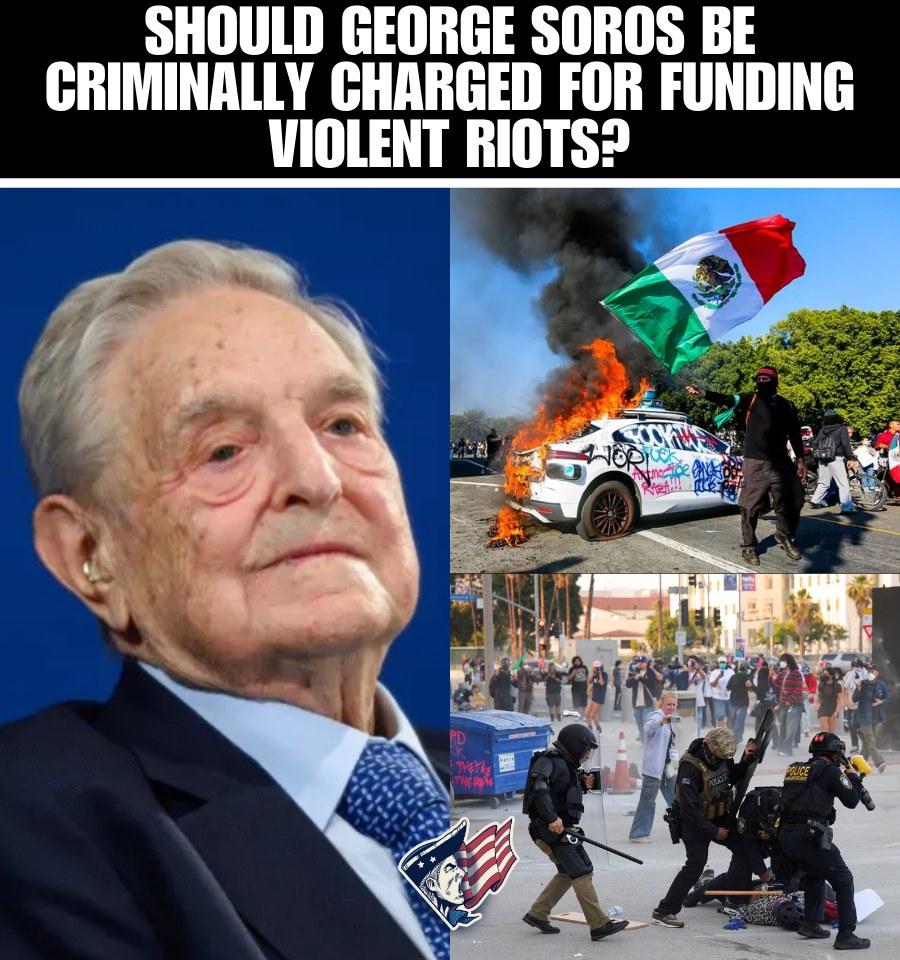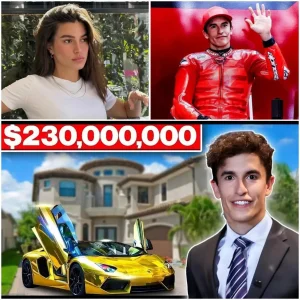The debate over George Soros and his role in American politics has been raging for decades, but in recent years, the accusations have reached a fever pitch. The billionaire philanthropist, long known for funding liberal causes, political movements, and activist groups, has been accused by critics of going far beyond normal political donations. They argue that Soros has crossed a line, funding organizations and networks that, directly or indirectly, helped fuel violent riots that left American cities in flames, businesses destroyed, and communities divided. The central question that now hangs over the nation is whether this kind of influence is simply protected free speech under the banner of philanthropy, or whether it constitutes criminal complicity in acts of violence.

To understand this controversy, it is important to look at Soros’s history. Through his Open Society Foundations, Soros has poured billions into progressive and left-leaning causes worldwide. He has supported criminal justice reform, immigration advocacy, racial equity initiatives, and efforts to reshape local and national politics. To his supporters, this makes him a hero—a man who uses his immense wealth to level the playing field, to empower marginalized communities, and to push back against authoritarianism. But to his critics, these same activities are evidence of a coordinated attempt to manipulate democracy, destabilize societies, and erode traditional values.
The accusations of funding riots stem primarily from Soros’s financial support for activist groups that have been involved in protests across the United States. Critics allege that while he may not have directly paid individuals to riot, his money has undeniably flowed into organizations that provided bail funds for arrested protesters, offered legal aid for activists, or organized mass demonstrations that spiraled into violence. The question becomes one of intent. Did Soros knowingly fund groups that were prone to violence, or did he simply support causes he believed in, unaware of how events would unfold on the ground?
Legally, this is where the issue becomes complex. In America, freedom of speech and political donations are deeply protected rights. To charge someone like Soros criminally, prosecutors would need to prove direct intent to incite violence or evidence that his funds were explicitly directed toward illegal activities. So far, no court has found such evidence, and many of the claims against Soros remain in the realm of speculation and political rhetoric. Still, for millions of Americans watching their cities burn during waves of unrest, the idea that a billionaire could so heavily influence these movements feels like a betrayal of democracy.
Public perception plays a massive role in shaping this debate. To many conservatives and moderates, Soros represents the epitome of elite influence, using vast resources to push agendas that ordinary citizens never voted for. They point to the devastation of riots—small businesses destroyed, neighborhoods left in fear, and police stretched thin—as proof that funding activist networks without accountability can have catastrophic consequences. For them, the issue is not just whether Soros technically broke the law, but whether someone with such power should be allowed to fund organizations that destabilize society without consequences.
Meanwhile, defenders of Soros argue that the accusations are rooted in conspiracy theories, scapegoating, and even antisemitism. They claim that Soros is vilified not because of what he has actually done, but because he symbolizes the wealthy, progressive elite that many conservatives distrust. According to this perspective, blaming Soros for riots ignores the deeper systemic issues that fueled unrest, such as police brutality, racial inequality, and economic hardship. To them, Soros is not the cause of violence, but rather a convenient target for those who want to discredit grassroots movements.
The deeper problem revealed by this debate is the role of money in politics itself. Whether it is Soros on the left or wealthy donors on the right, billionaires exert influence that far exceeds that of ordinary citizens. When their donations contribute to chaos, the public naturally demands accountability. But the legal system struggles to reconcile this demand with constitutional protections. Should there be stricter limits on how billionaires can fund activist organizations? Should donors bear responsibility for the unintended consequences of the movements they support? These questions go far beyond Soros and touch the very heart of democratic society.
At the end of the day, the debate over George Soros is about more than one man. It is about whether democracy can survive when vast fortunes can be used to shape public life in ways that ordinary voters cannot control. It is about whether free speech protections should shield donors from accountability when their money indirectly fuels violence. It is about trust in institutions, fairness in political influence, and the fragile line between protest and riot.
Whether Soros should be criminally charged may ultimately be less important than the broader question his case raises: who really governs in a democracy, the people or the billionaires who can bankroll movements from the shadows? Until America confronts that question honestly, the name George Soros will remain both a symbol of philanthropy and a lightning rod for outrage, embodying the tension between influence and accountability in an era of unrest.






